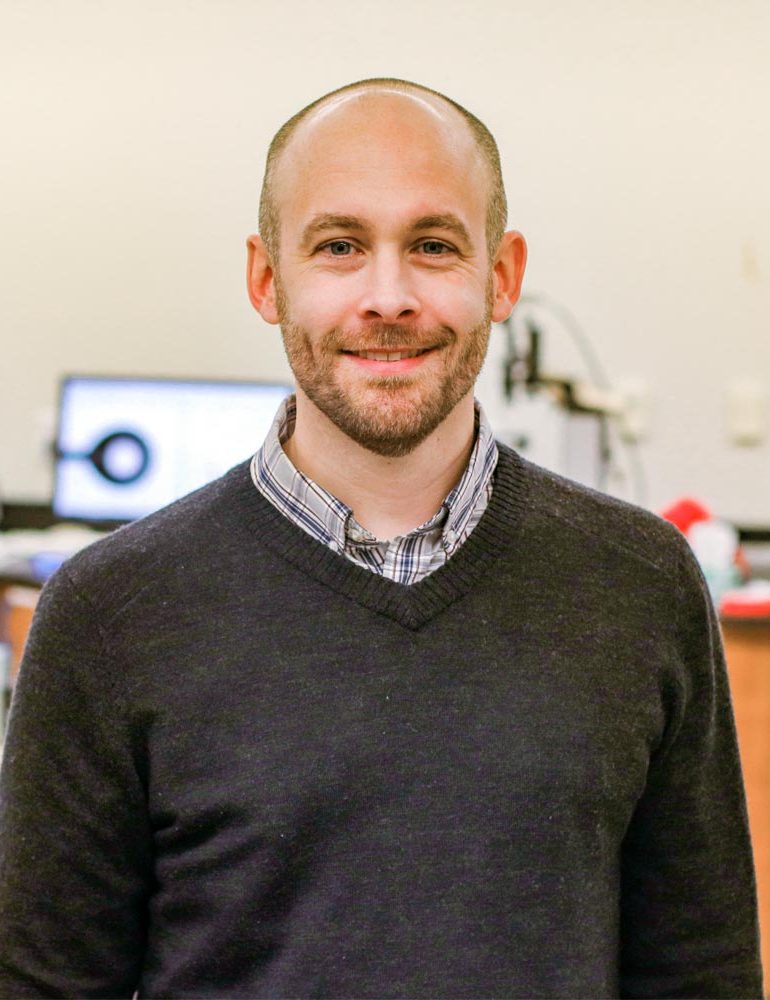Associate Professor Andy Sarles (MABE) is playing a vital role in research seeking to improve smarter, more autonomous vehicles by taking an approach notably different from past efforts.
Known as neuromorphic computing, his approach uses hardware components, such as memristors—which are variable resistors that remember the state they are in even if power is lost—to mimic the neurons and synapses found in the brain.
The next big challenge for Sarles is finding ways to combine different molecules to engineer a property called plasticity. In his bio-inspired wet-ware, he is developing materials that achieve voltage-activated plasticity via lipid membranes and ion channels—just like in real neurons. By connecting those materials to solid-state circuitry, Sarles’ team is creating hybrid neural networks that mimic how neurons communicate.
Another advantage of the biomolecular approach Sarles is taking is the range of functions that can be obtained by combining various types of voltage-activated biomolecules, with each component measuring at a nano-scale level.
All of this comes with Sarles as part of a wider team working together across several universities, with UCLA serving as the lead, as part of a Multidisciplinary University Research Initiative (MURI) grant awarded by the US Department of Defense.
